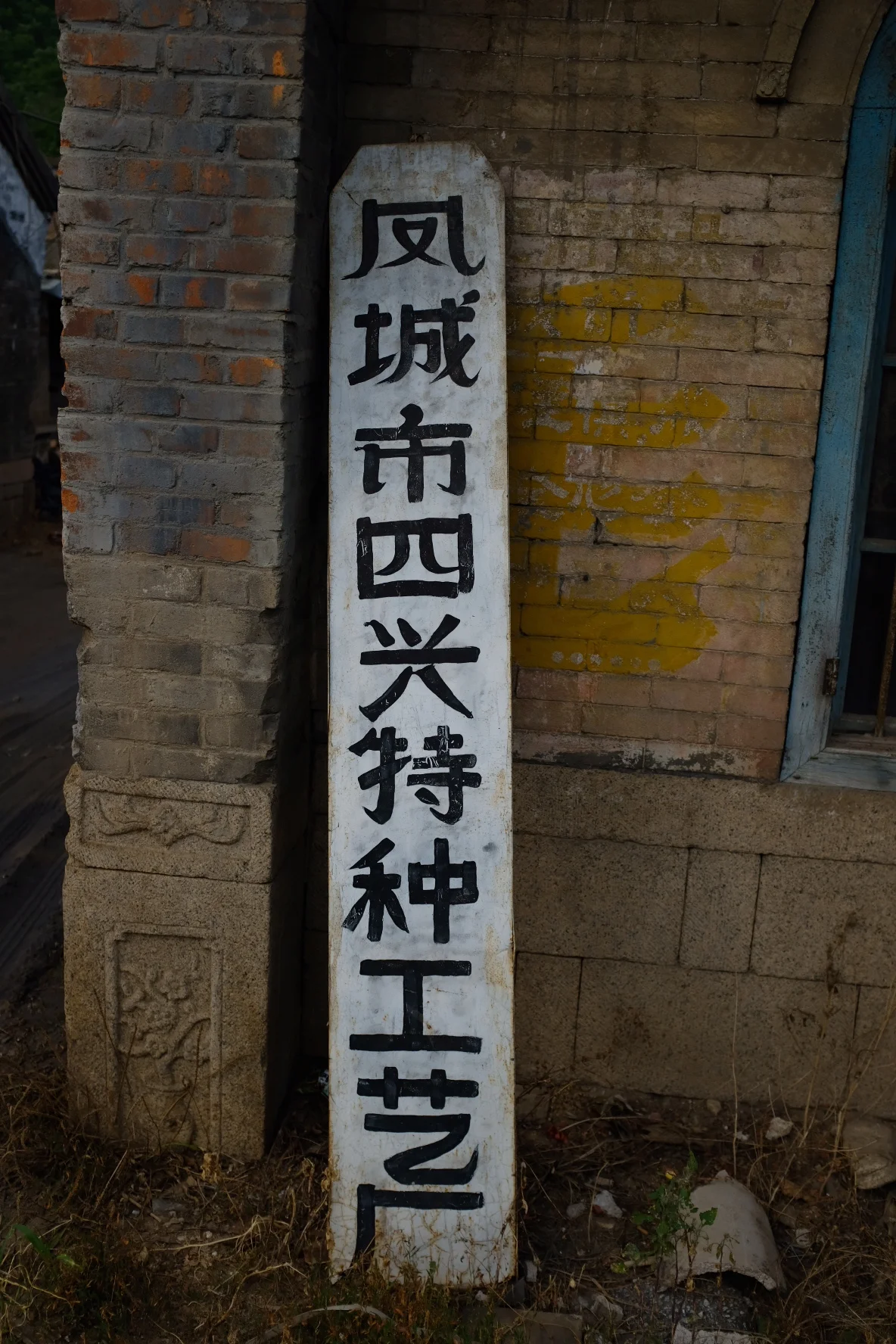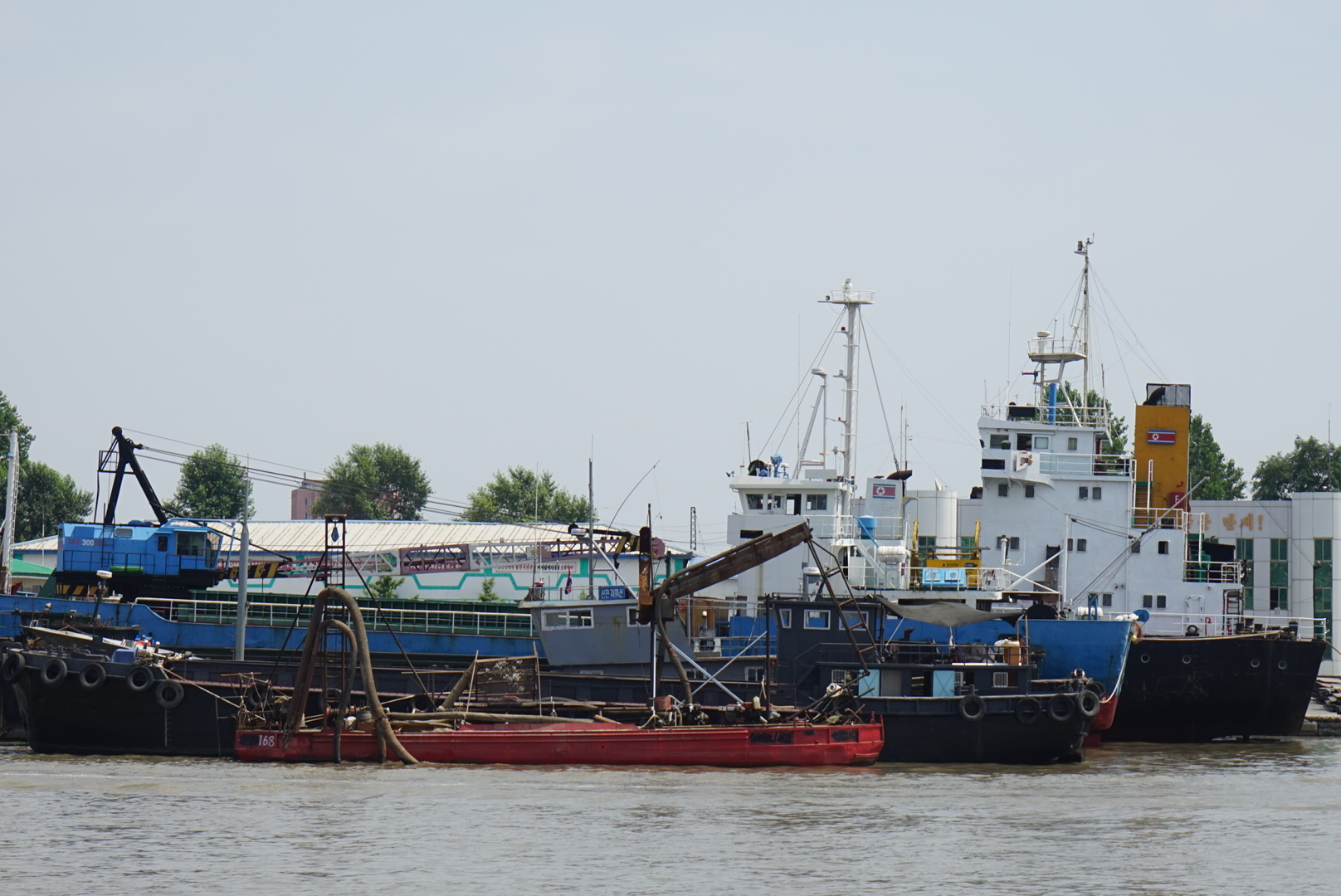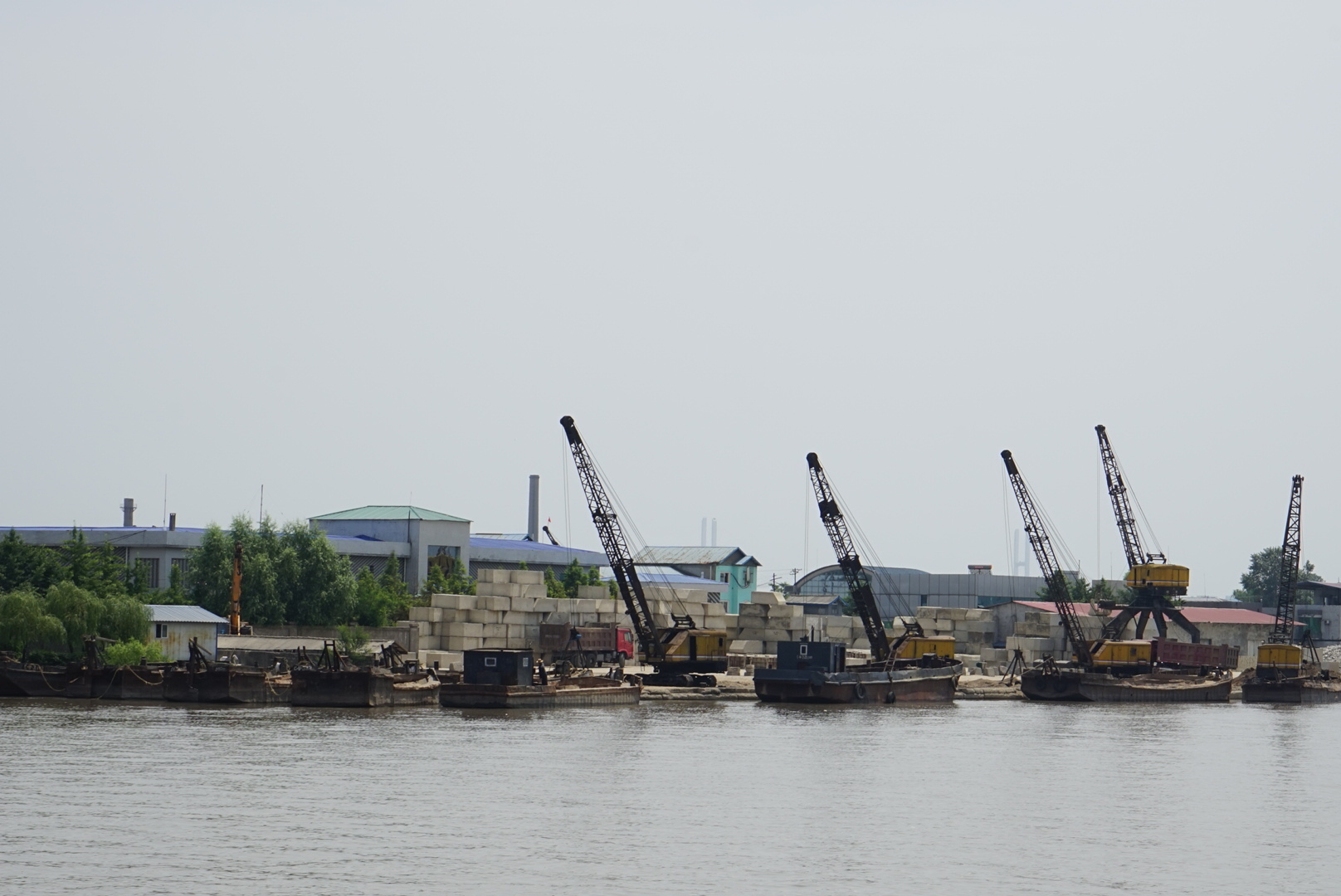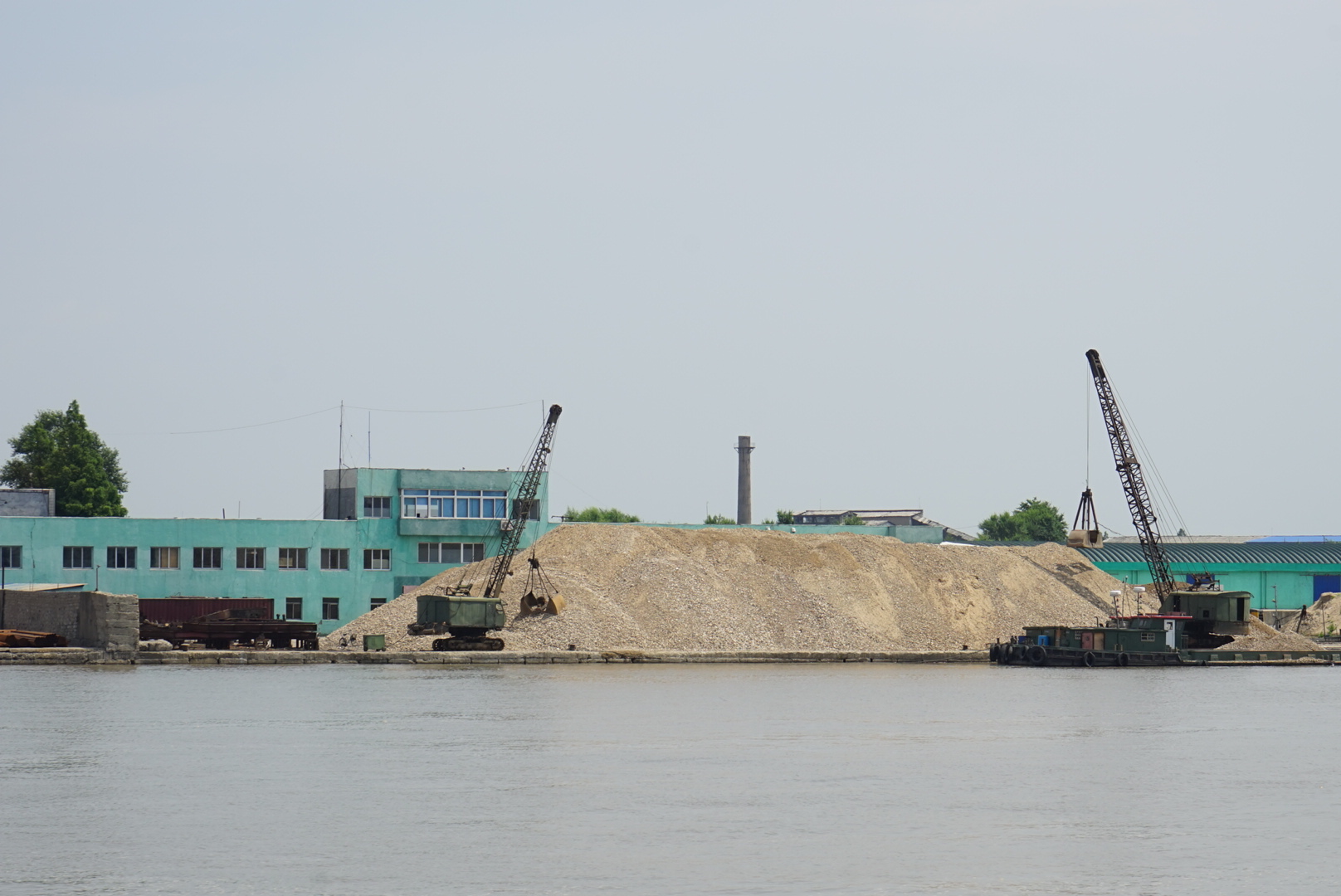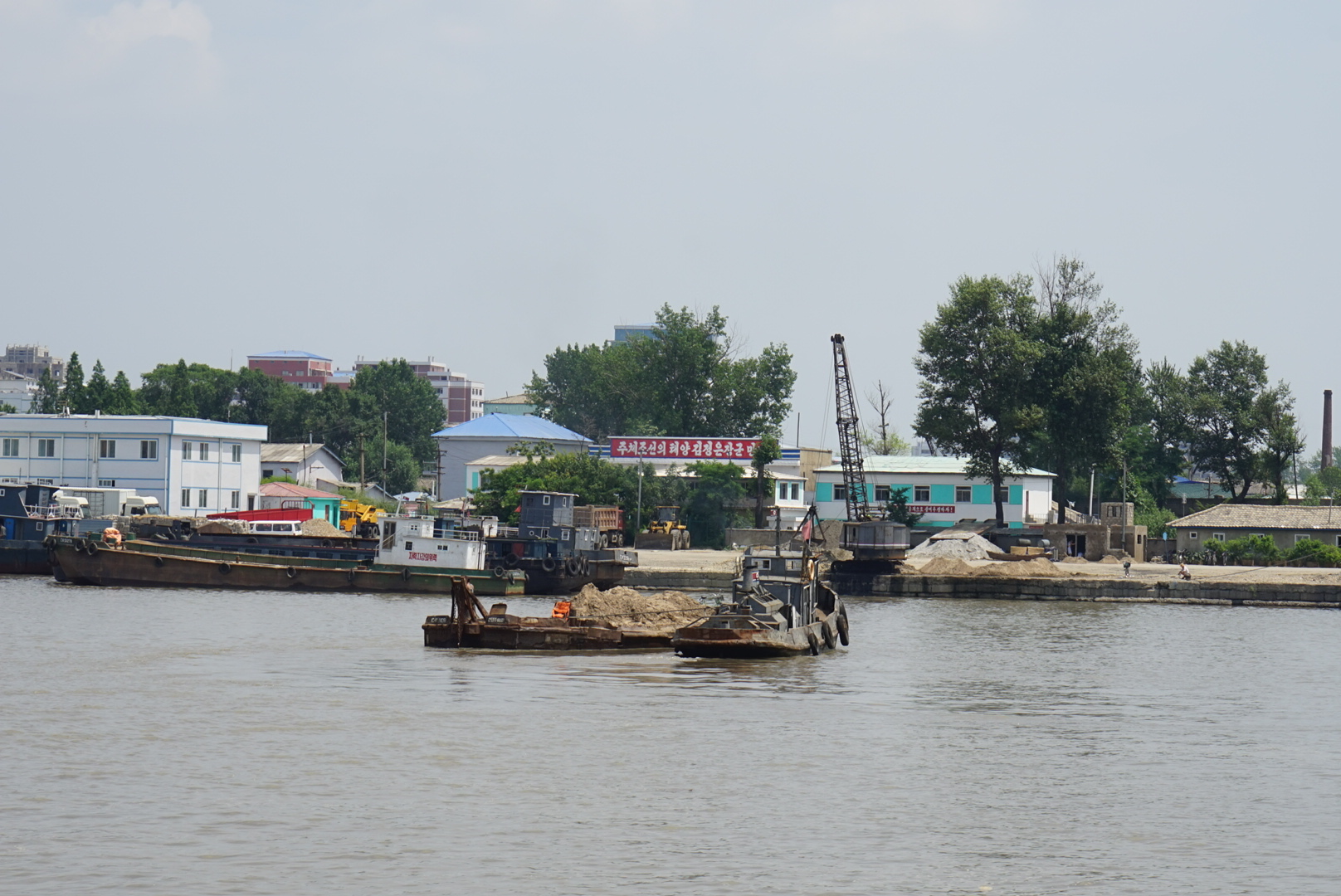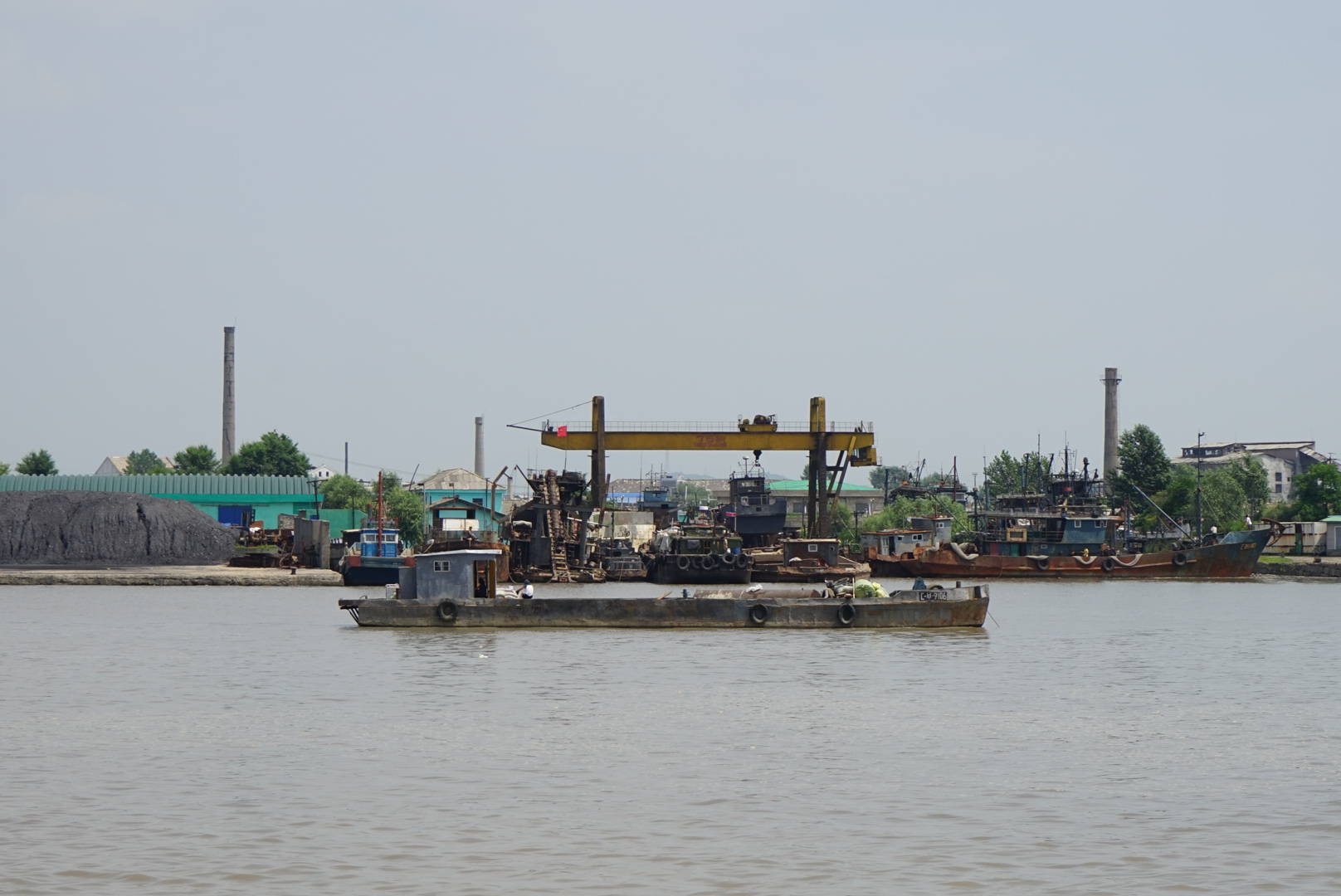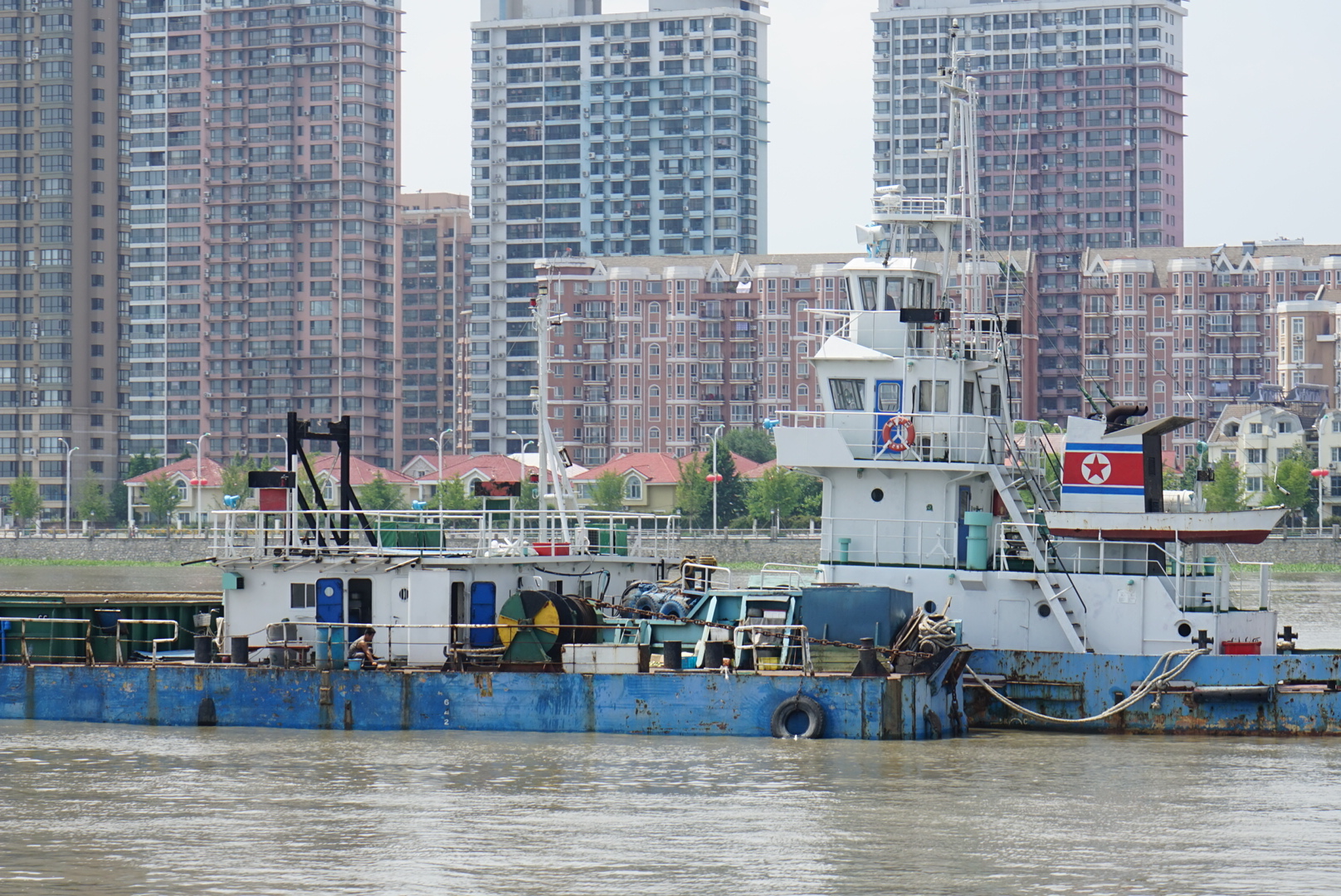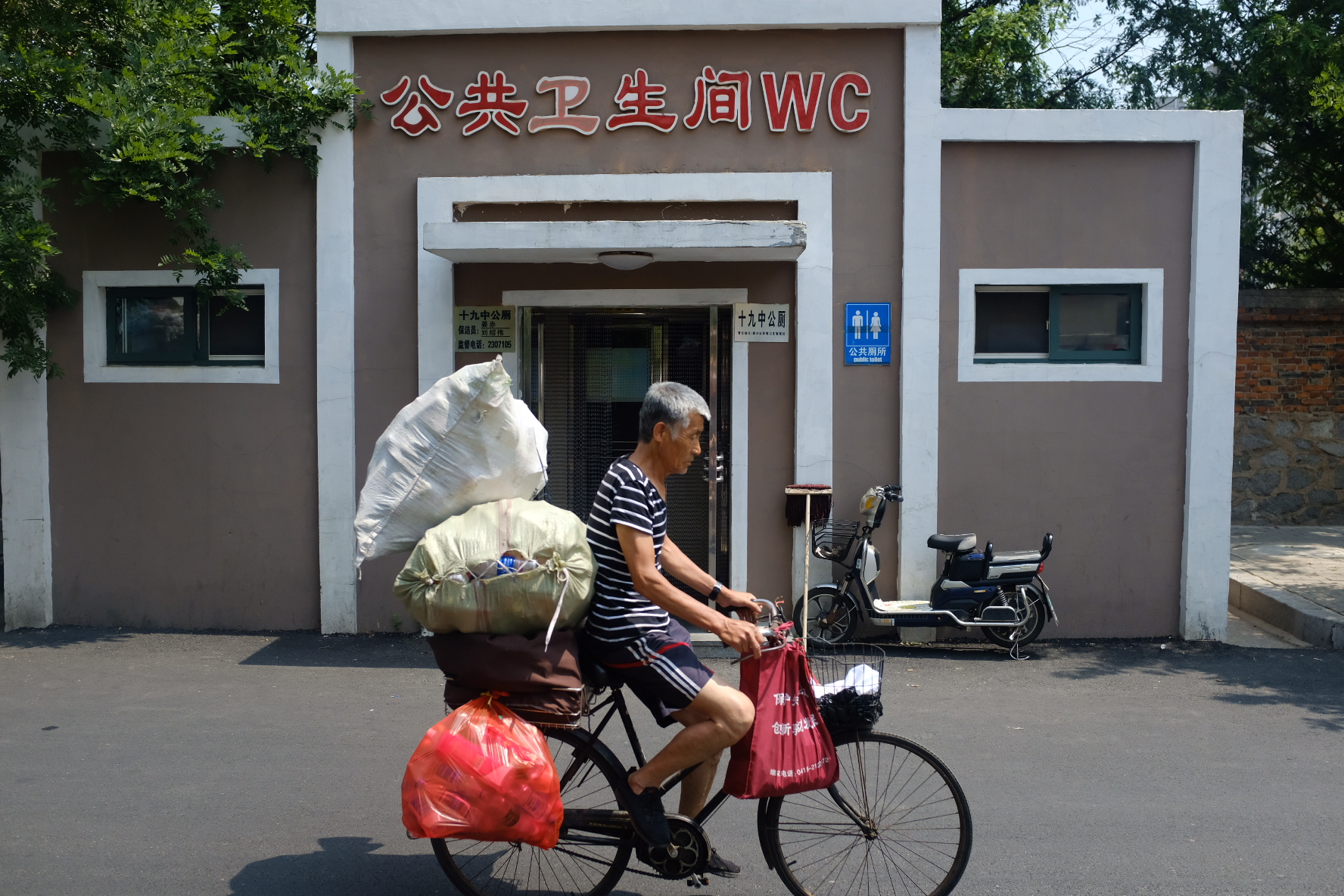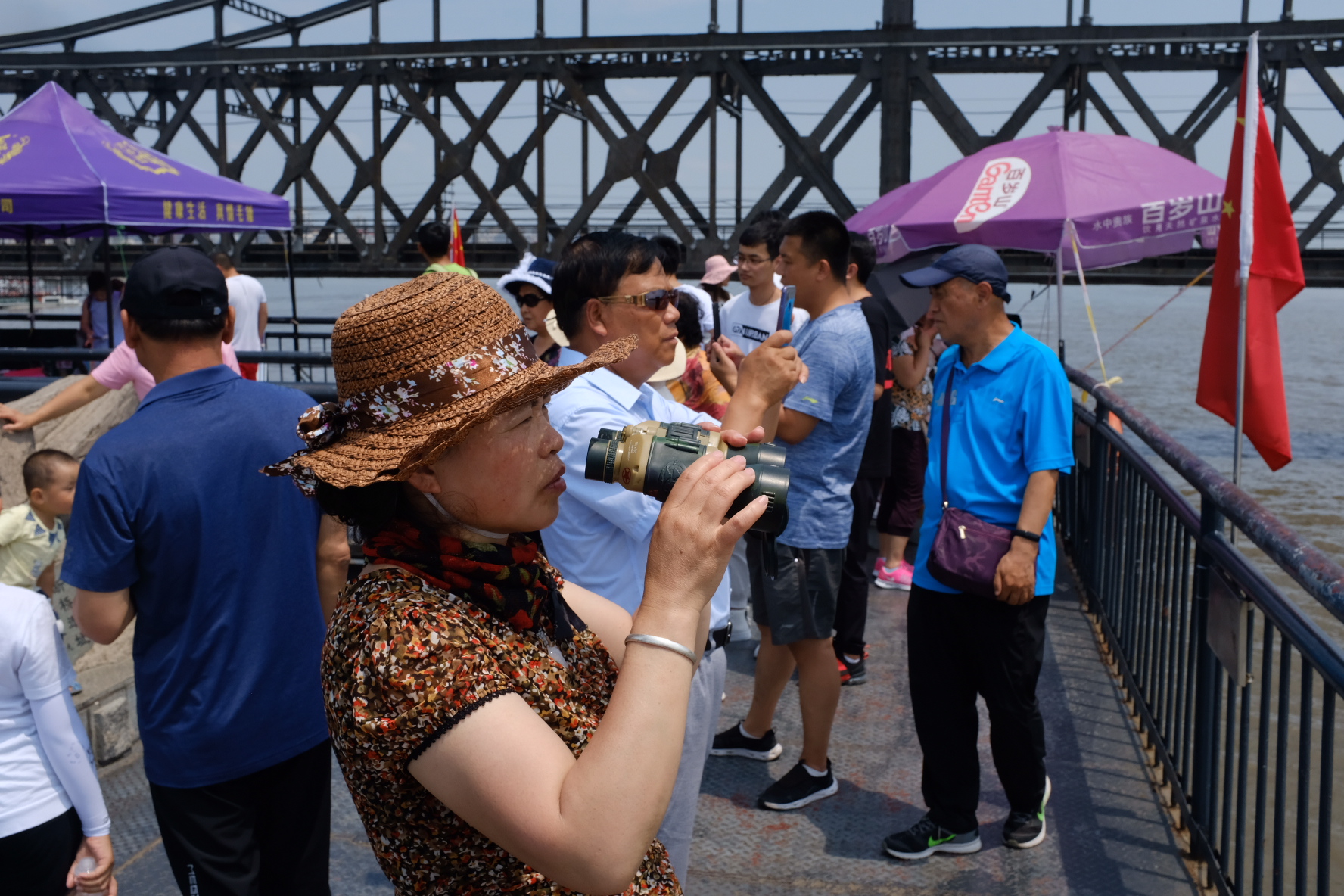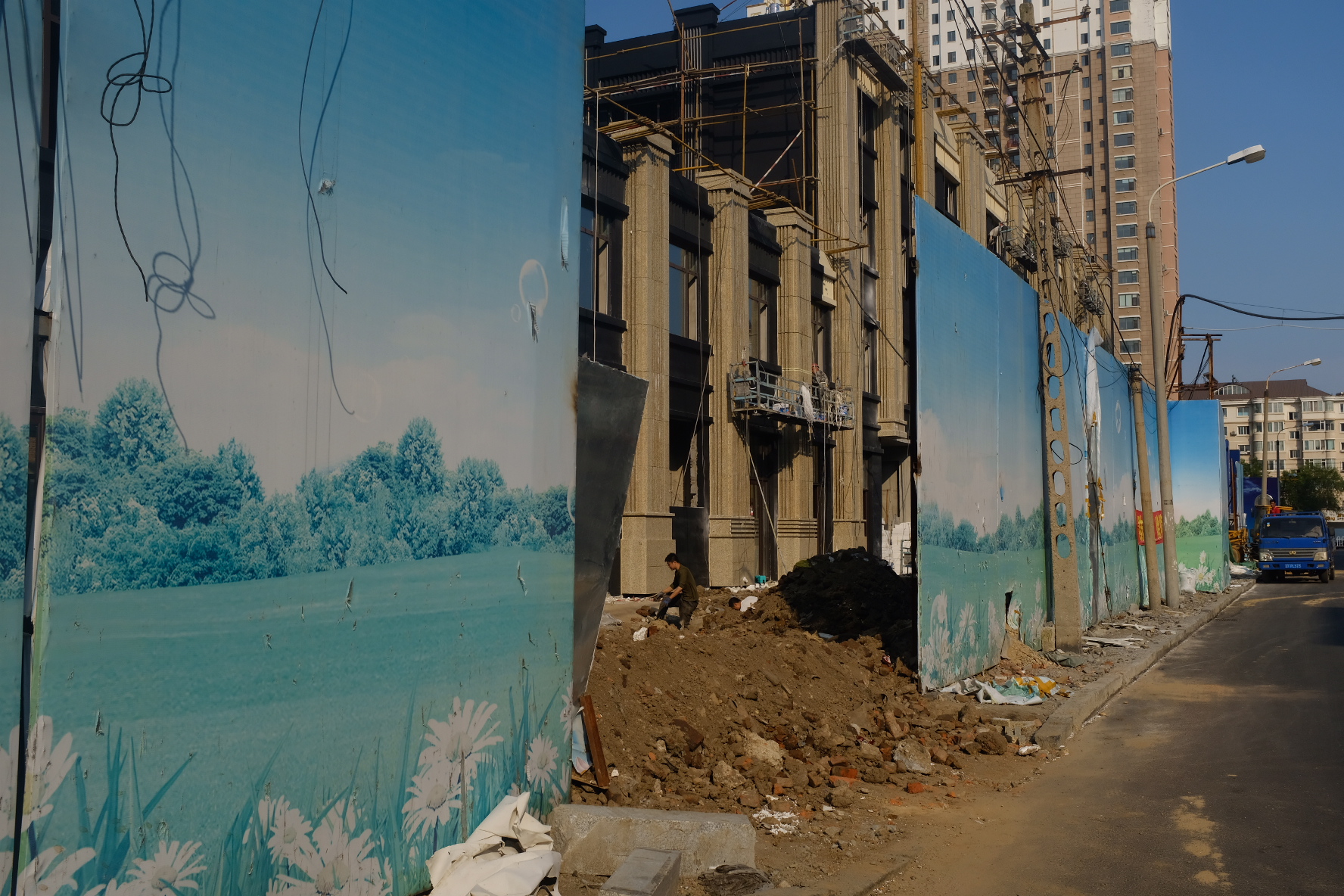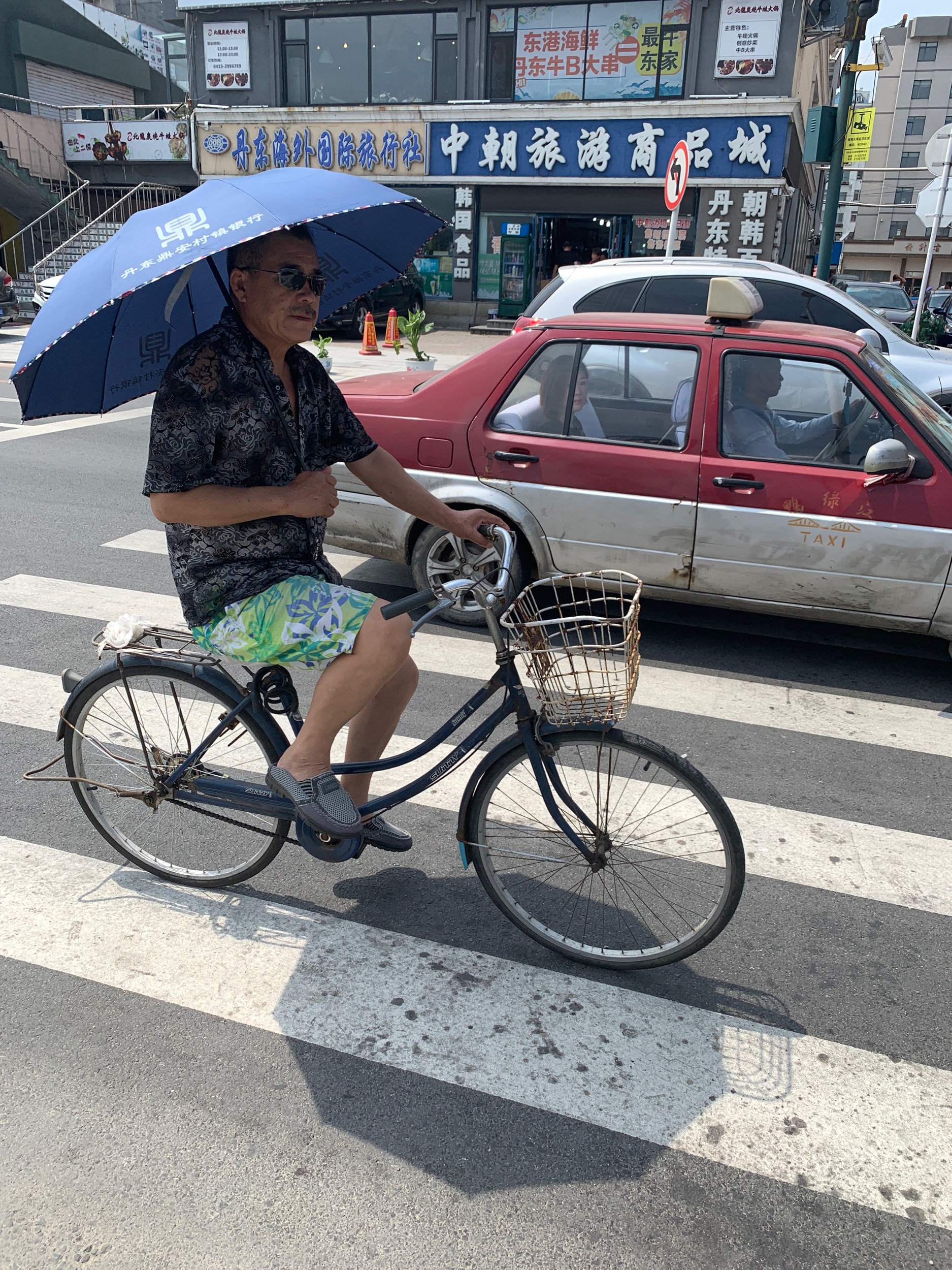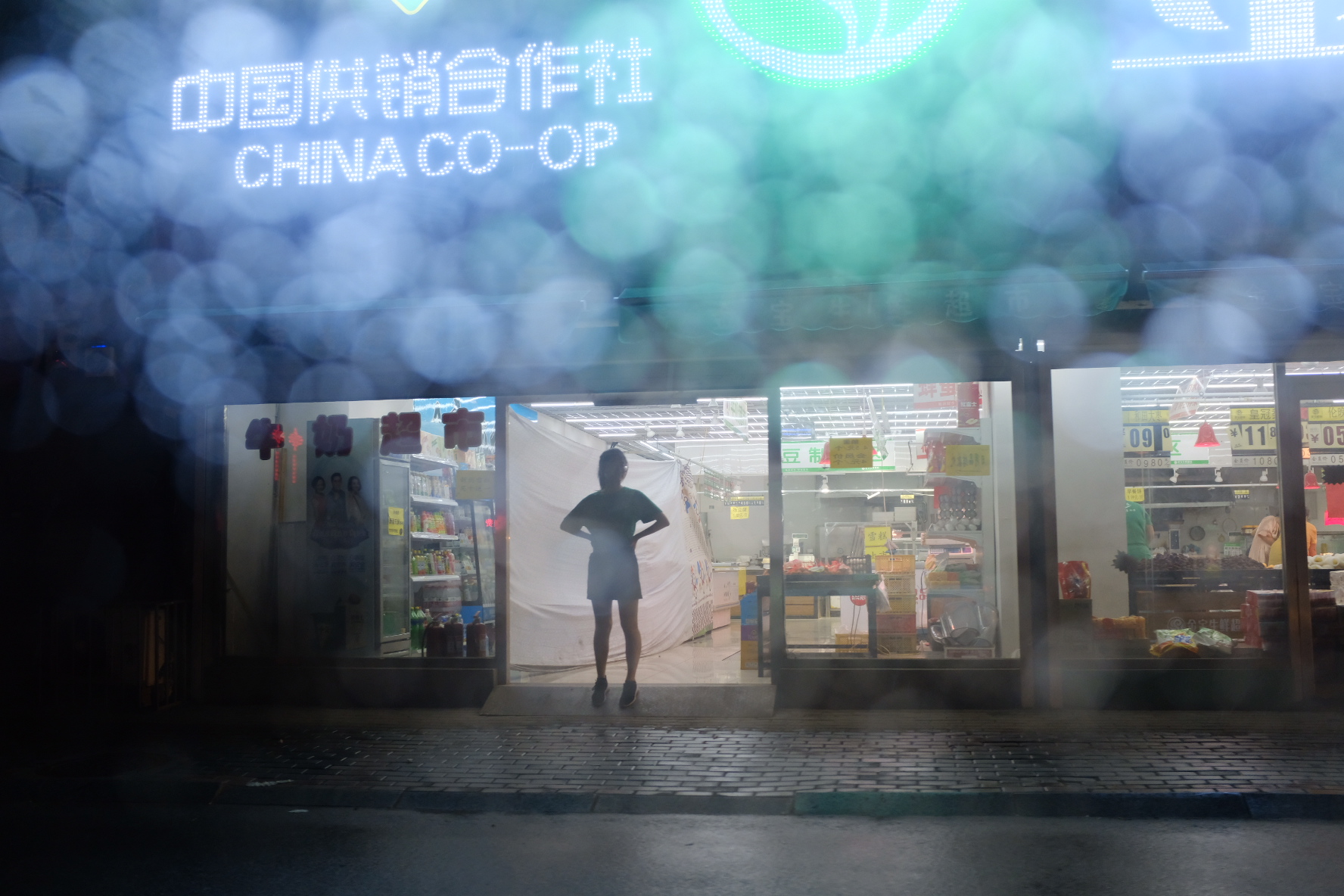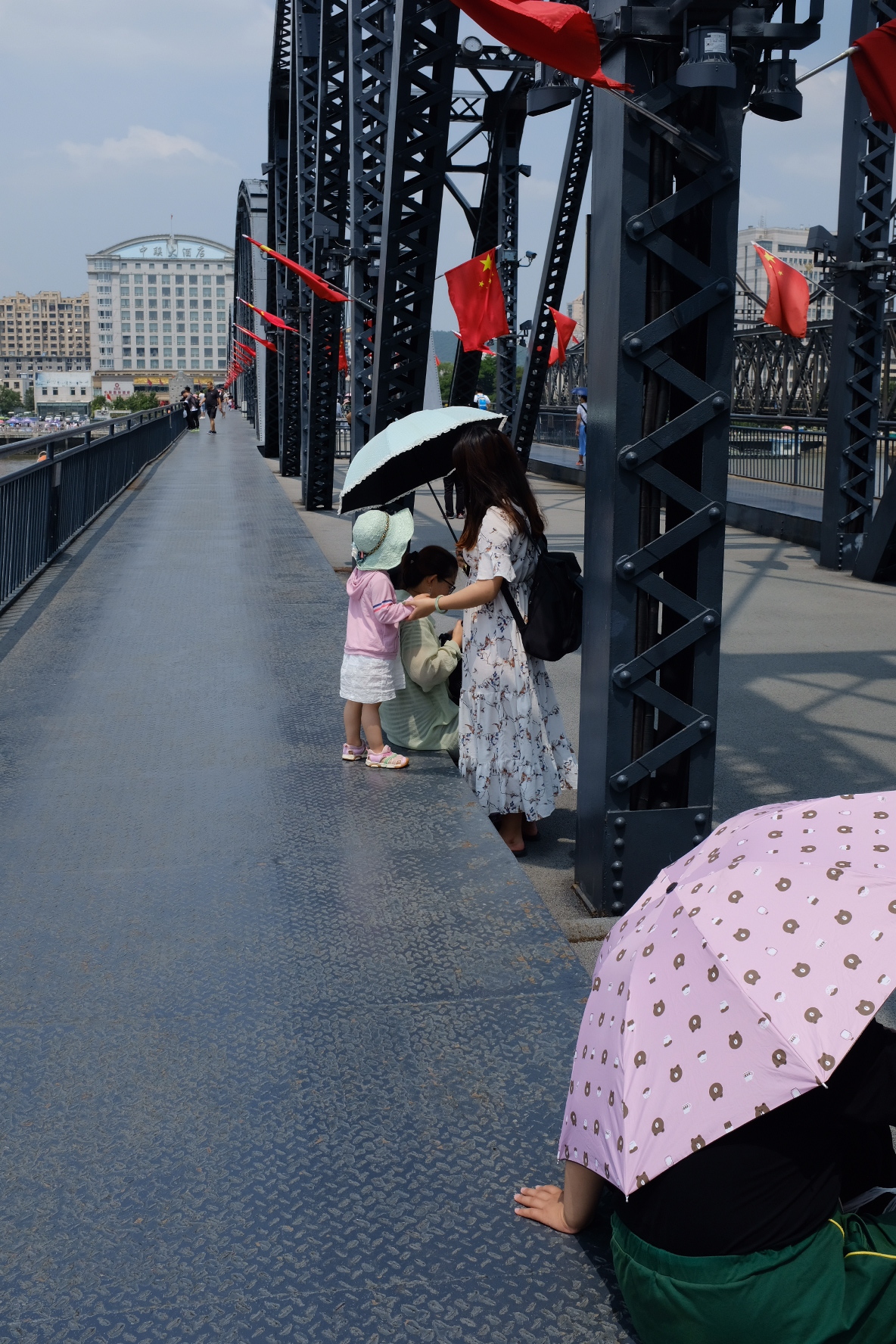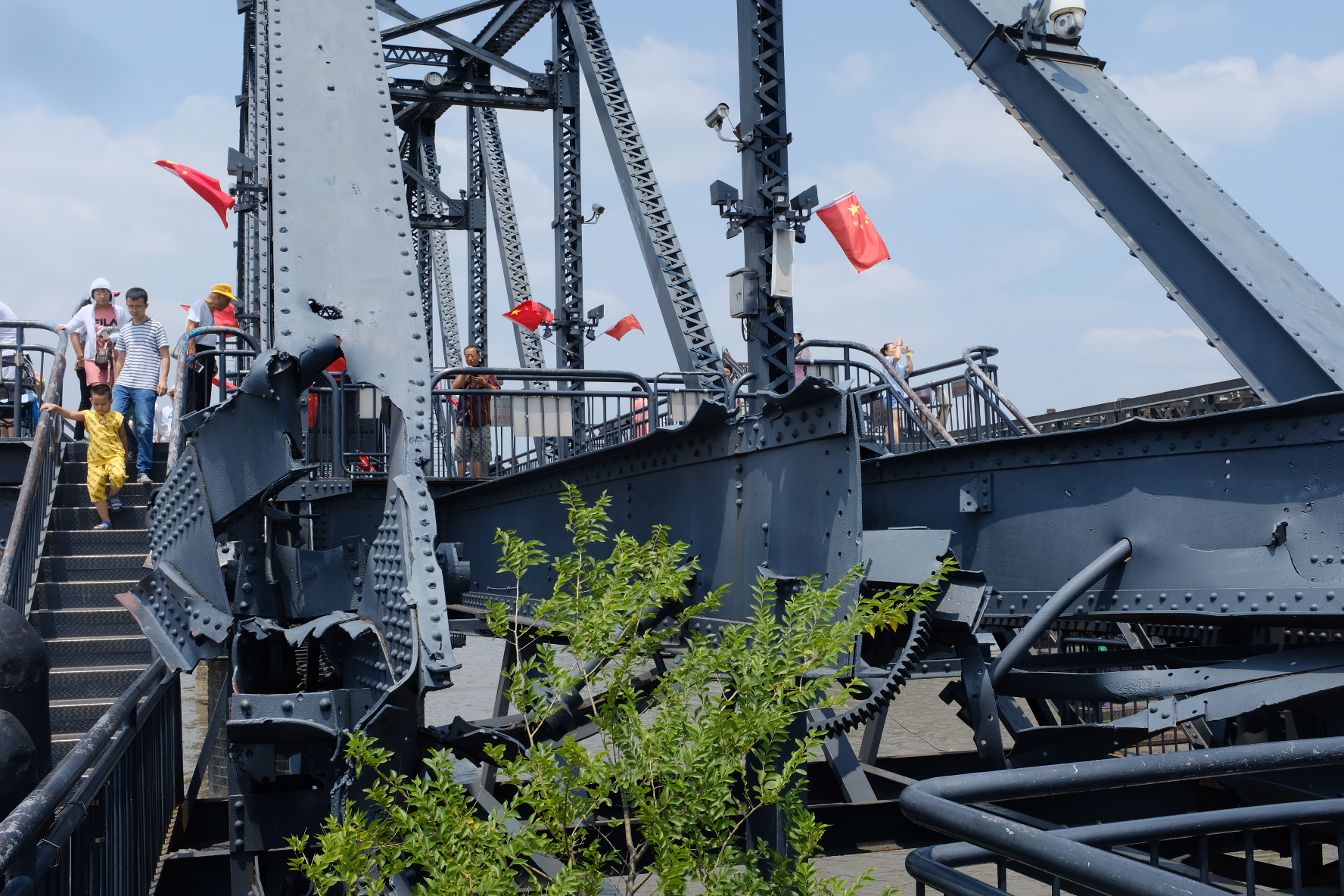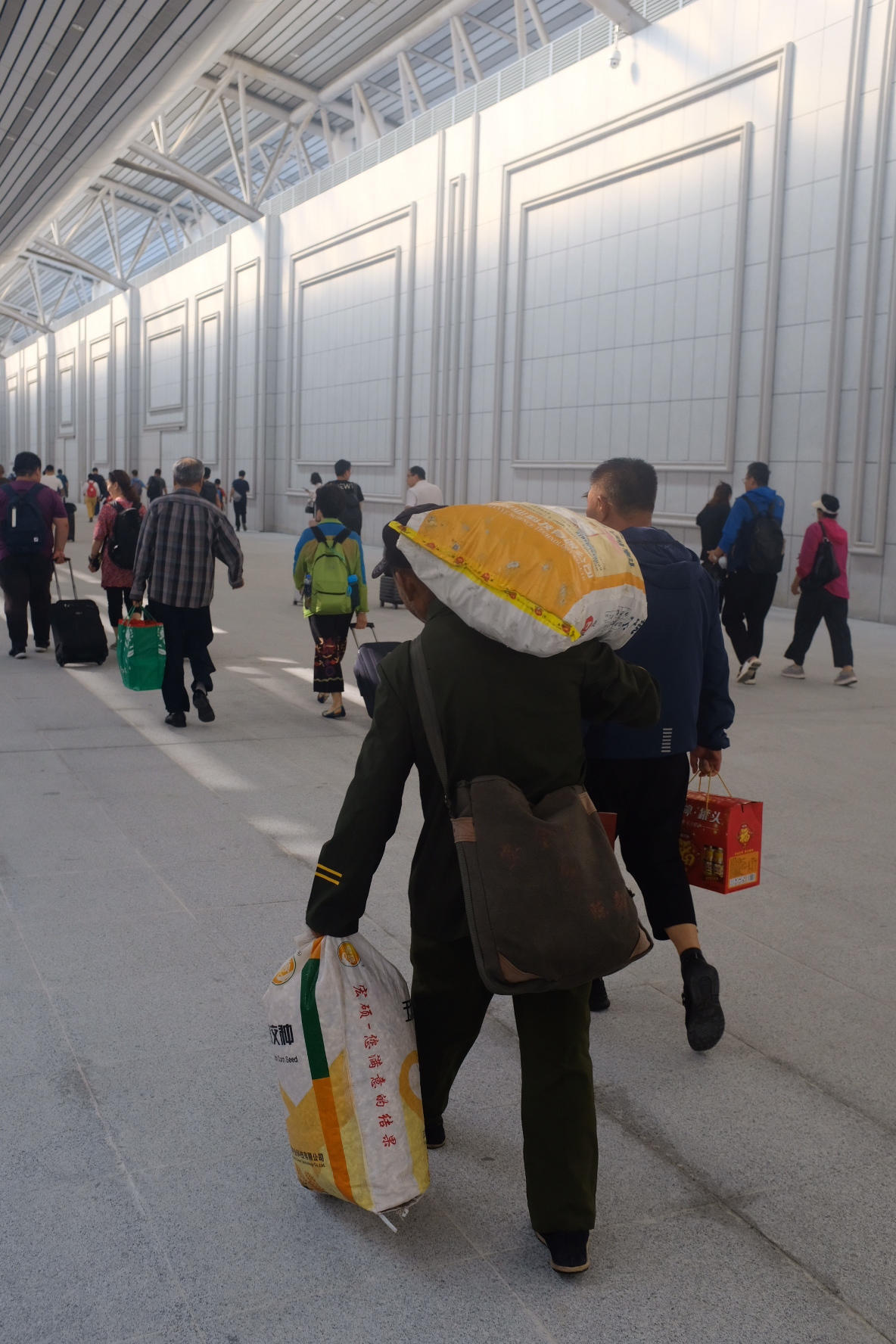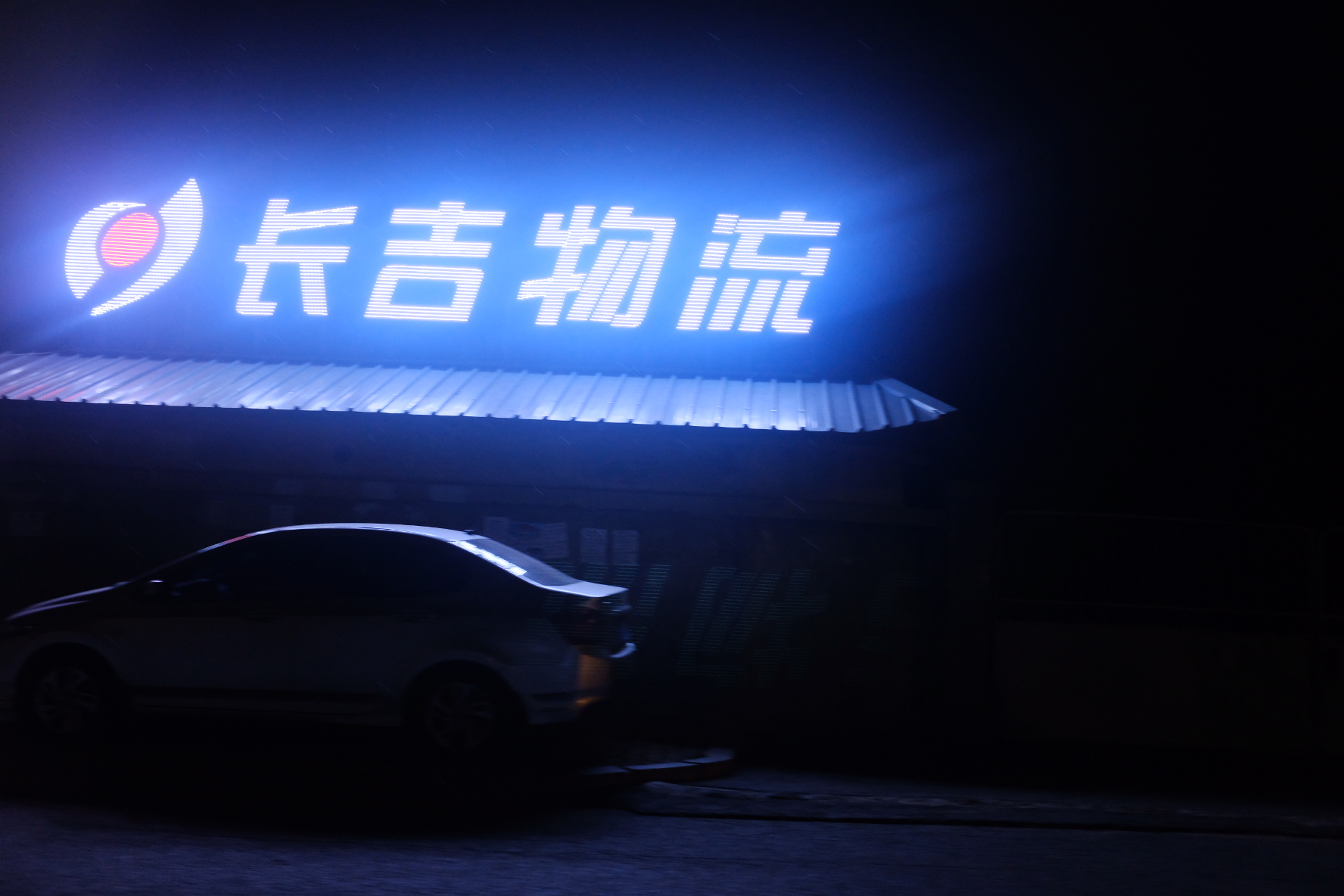“Ah, that´s a dog meat restaurant, lets go.” Our driver, “Jason”, says as he crosses the road. Eddie turns back to me, and smiles. ¨Should we do it?¨
There are moments while traveling, when taken out of context, seem nearly impossible to occur. For example, how would our taxi driver “Jason”, who was a “trader” for Chinese and North Korean goods for over a decade and now drives to take care of his daughter, end up spending the day with Eddie and I in some random rural village? I imagine it’s one of the most un-ordinary days for him in a long while. It was clear he wasn’t not sure what to make of us curious foreigners when we jumped in his cab from the Dandong station. I don’t blame him, we are strange and we are curious. The village we agreed on is called Bienman, or Gate Door. It once acted as a immigration route between North Korea and China. No remnants exists today.
Jason happily greeted us after we hopped in, post our North Korean lunch. We could tell pretty quickly he was a bit tense. Why were these foreigners wanting to go to this random village? What are they up to? Eddie said he asked if we were up to ¨sensitive business¨. Foreigners asking about intimate details of life and prodding where they shouldn’t is frowned upon and his suspicion is not uncommon. Soon enough we were out of the city - small by Chinese standards but still housing over 2 million - and into the countryside. Flowers appeard on the side of the road and rugged, rocky hills surrounded us on both sides. Transportation transformed from cars and buses to mopeds, horses and bikes.
We pull over to take in the scenery, snap a couple shots, and so Jason can smoke a cigarette or two. I point to a bridge on a far off mountain and ask if that´s for cars.
“Yeah, we can drive all the way to the summit, want to go?” Jason asks.
Not really, I want to see village life, not mountain roads. Jason still feels a bit uncomfortable, or maybe just confused with us, but Eddie´s continuous chat is starting to put him at ease. We pull over in front of a pharmacy in the village to pick a couple things up. The pharmacist is a bubbly woman, who Eddie points out must have gone off to university in a larger city, then returned to the village to run the shop. She is fascinated with me and pulls out her phone to take a picture. I response with a camera of my own:
I get even more looks here than I did in the cities, but that´s fine, I know they are just curious. We later find out that I am the first foreign man Jason has driven. We pass by a fresh watermelon stand and Jason treats to half of one. We decide to continue walking so we can find a good place to dig in.
Life is explicitly slower here: people walk slower, drive slower, maybe they adopt modern changes sower too. I am enjoying the contrast to the cities, looking into the small alley ways that lead to a shed or farm instead of another, darker, alley. People are just more chilled out, and what would be they be in a hurry for anyway?
We turn what seems like the final corner in the village, and just before we decide to head back, Jason perks up.
“That is a local dog meat restaurant, let´s go”. He has already crossed the street and called for the waitress before we can respond.
Now, for western people this a pretty sensitive topic - as well as in some parts of Chinese society I should add. Dogs are more than animals, they are companions, friends, and important parts of some families. In other cases, this is taken too far.. they don’t need birthday parties with cakes and decorations, do they? Really? I love that dogs evolved to understand human emotion, and that, after not seeing you for several hours they think it´s fucking awesome you have returned from god knows where. I´m not going to have a moral discussion about eating dog meat. I’m in rural china and this restaurant serves customers daily, and for generations. So we did follow Jason that street, and went with it. The view was perfect, the watermelon was calling, the local wanted to take me, and the meat was already prepared. Did I feel bad? Yes, a bit.
So we sat, we ate, we drank, and I watched. With the mountainous peak as a backdrop, I saw the various modes of transport that passed us by. I started to notice the variety of size, shape, and color. So much character in the vehicles and the passengers. I didn´t see a single taxi: people here are more dependent on vehicles, something I can relate to growing up in small town USA. We even had a few people walk by, going who knows where.
While Eddie was talking to Jason, I started picking up my camera and capturing, again and again, until the battery died.
A grandpa who was hanging out while his grandkids played with a toddler whom I presume lives at or near the restaurant. I think he noticed us staring at the baseball bat sized cigarette he had rolled. He took another one out and handed it to us. Well, why not? I’m already pretty deep here. When we got up, I dog meat, beer, and cigarette in my system. I had to laugh at the moment. How the hell could I predict one day I would be smoking a hand rolled cigarette from a rural villager in China after a meal like that?
Grandpa on duty
We head back to the car and Eddie and I reflect on the day we’ve had so far: from the broken bridge to the baseball bat cigarette. But Jason has one more treat in store for us. On the edge of Dandong he pulls in front of a non-discript storefront. It’s a “sheep soup” restaurant, a locals favorite. I think they serve other things but the sheep soup is what hundreds of people come for everyday, mainly for lunch. Holy shit, lunch? What do they do afterwards? After a couple minutes, 3 giant bowls appear. I peer down, look up to Eddie, and ask what I probably shouldn’t have: “what’s in it?”. Cooked blood, intestines, cartilage, and the kitchen sink of sheep bits. It’s a deep bowl and it’s packed with this meat stuff, maybe half a kilo. It’s pretty amazing people knock this down and then go back to work. Broth and bits, that’s all folks. Jason shows us how to add vinegar, pepper, and MSG, and it does help. I’m already full so I take down maybe half the bowl of bits, the other half Eddie happily gulps down. “I swear man, I was a Chinese man in another life”. I definitely wasn’t, but damn if I don’t respect them - and their microbiome. Let’s hope mine holds up.
Left: Eddie, Jason, me
More from Bienmen:












































